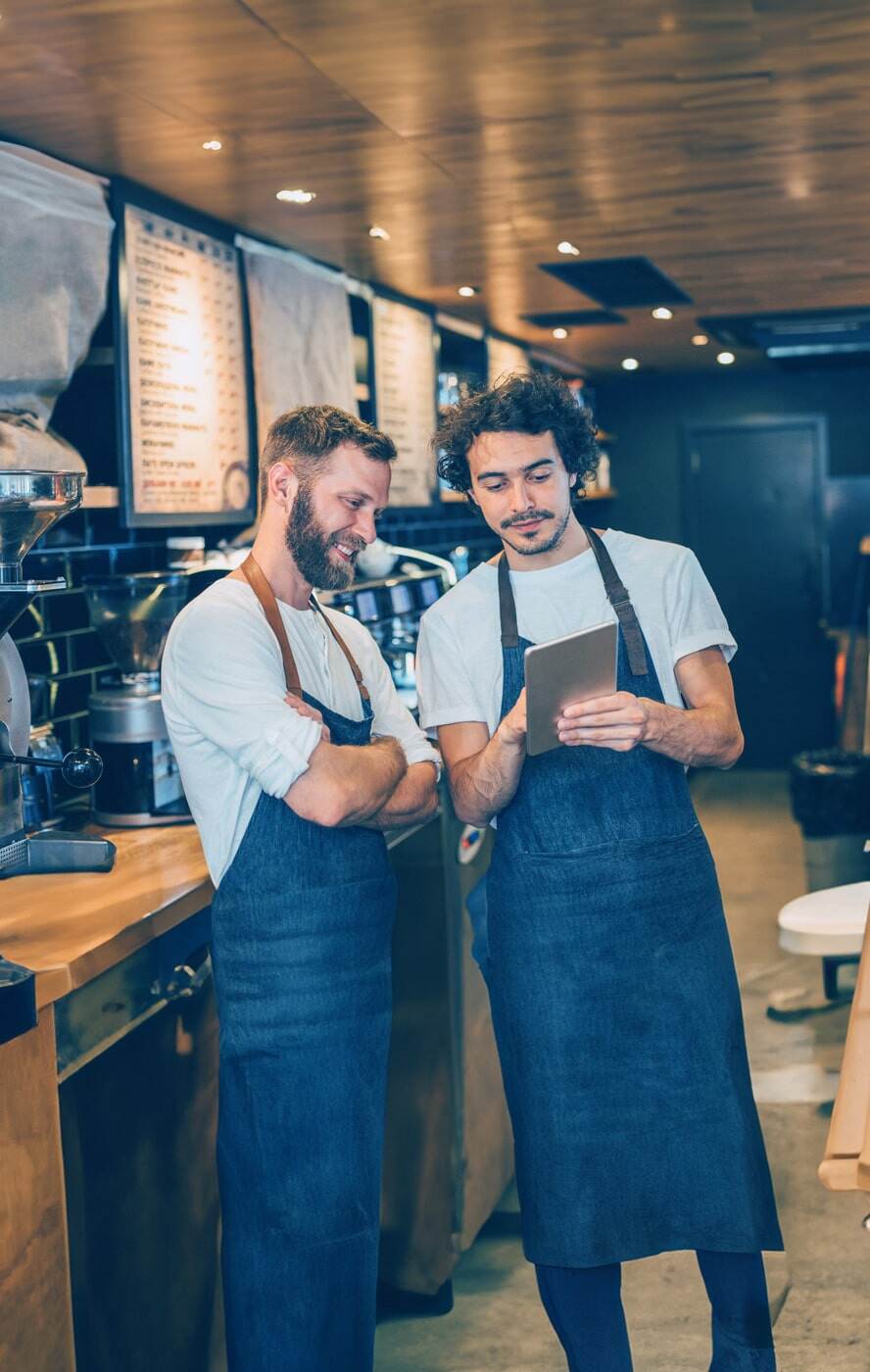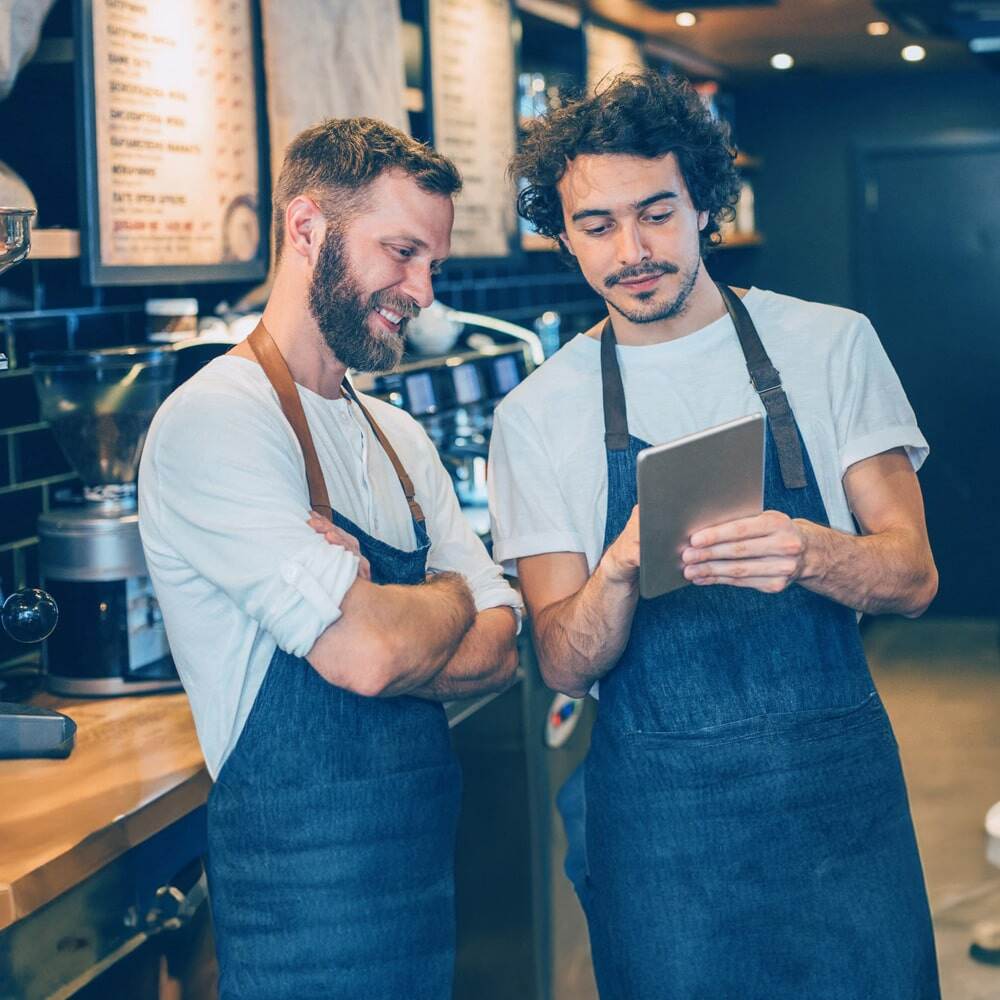A restaurant is not a charitable institution: restaurateurs also want to earn money, and guests don't just want to be fed. So on the one hand it's about profit, on the other about culinary pleasure.
The restaurant runs when both come together. If profit takes precedence over enjoyment, the guest stays away. If enjoyment is more important than profit, the restaurant cannot survive.
So if you offer a lot of enjoyment, you can also make a lot of profit. More sales - so-called upselling - therefore only works if you really offer the guest more. And that is quite a lot. Dario Salvel from the Widder Hotel in Zurich sees a turnover potential of 20 percent in upselling.
What exactly upselling is and what is important to ensure that upselling does not lead to upsetting.
What is Upselling?
Upselling means selling the customer more of what they want.
You have to offer the guest added value. On the one hand, this can be another product that he also likes, e.g. fries with the burger or truffles over the pasta. On the other hand, it can be an alternative product of higher quality that really promises more enjoyment, e.g. a Barolo instead of a Langhe Nebbiolo. And it also follows that simply selling something to the guest just for the sake of money is not an option and will backfire.
Upselling: This is what matters
Trained and attentive staff
There is a fine line between upselling and imposing. The most important thing is a trained, attentive and enthusiastic staff.
Knowledge is the foundation for upselling.
The staff should have internalised the menu and the offers. Know exactly what is on the menu and what speaks for the individual dishes and drinks. Everyone in service must be able to point out what is good and special about it: Why another product harmonises so wonderfully with the one already ordered. Why another product promises an even greater pleasure for this guest. And all this must also be packed into a beautiful story. With so much knowledge, you create the magic moments for the guest - and the guest relinquishes control and enjoys what was recommended.
Passing the card is not yet a recommendation.
Specific recommendations are therefore better than general ones: If a special wine is recommended to the guest with reasons why it is nice to drink right now and why it is a perfect match for the ordered dish, then the guest is much more likely to accept the recommendation, which is also expensive. If, on the other hand, only wine is recommended as an accompaniment, neither the experience nor the price of the chosen bottle is likely to match the specific recommendation.
Eyes on the sale
Staff should also train their eyes to recognise the "window of opportunity" for upselling. And that is, on the one hand, with the uncertain guests. With good knowledge and a convincing recommendation, the agony of choice can be taken away from the guest here. With the joy of making the right decision, these guests enjoy the recommendation very much - and are also receptive to further ones.
On the other hand, curious guests are potential addressees for upselling. Those who dare to try something culinary, who are open to new experiences. These may then also cost something. Here, too, profound knowledge is the key. Because you pick up these guests with the story of the product, what makes it special, and how and in which combination it is best enjoyed.
Upselling is a question of timing
The aperitif with the menu is a classic, but not an art. It is quite different when you come to the guest with a personal experience on your lips and an equally personal recommendation, even for between courses. A surprising stopover on the culinary journey, an exciting stop or a connecting element. And last but not least, the highlight at the end, which doesn't have to be dessert or coffee.
If the question and recommendation come too late, the guest will only ask for the bill. And this is also the most important rule in terms of timing: if the guest waits, both enjoyment and turnover suffer.
Smiles sell
Knowledge and skill only become mouth-watering and sales-promoting through passion and enthusiasm. The staff must stand behind the products, behind the menu, behind the wines. Everyone in the service department must be a host who is at home here, and who wants to offer the guest a home with the most beautiful things they have to offer.
If the guest has the feeling that the service would now like to eat and drink exactly the same, that they rave and melt for it, then the guest eats, drinks and tastes further with the same pleasure.
Pay please!
Besides the magic, numbers also count. The staff should also know the margins so that if the guest is undecided, the product with the higher margin can be offered. But be careful: this product must also be convincing in terms of content, must be recommended with the same enthusiasm. And the enjoyment must not suffer.
Tell me who you are - and I'll tell you what you eat
And where there are numbers, data is not far away. Because upselling is not imposing when you know what the guest wants. And especially with returning guests, you know that. At least if the corresponding data is stored in the system, what a guest has already ordered, what his culinary interests are, and what he doesn't like.
Those who have this information can follow up on previous visits and make suitable recommendations without great risk and above all in the interest of the guest. And if the guest comes back, it means that he liked it and trusts the recommendations. This is a clear go-ahead to recommend even better products to the guest for an even greater experience.
Upselling before and after the visit
Anticipation is the best joy
The special is not always available, and that also applies to special products and drinks. Special dishes or special wines that are only available by advance order develop their special charm. For special dinners in particular, no one wants to miss out on something special. Rares on pre-order is also a unique opportunity and the prospect of a special dinner, a special treatment.
Reveling in memories
And that's exactly how a beautiful evening should linger. That's why the last impression is so important. No waiting for, no hassle with the bill. The last impression builds the bridge to the next visit. Especially when products can be given away or taken away to remind you of the wonderful occasion or simply the special salad dressing for home - which, conversely, also increases the desire for a visit to the restaurant.
The art of hospitality - experience instead of food
What is this dish or that wine against an all-round successful experience? And that is also the high art of offering the guest an experience, a culinary journey that, like other journeys, has just as much a fixed beginning as a fixed end, where openness and surprises characterise the path.
And what is the best time while traveling? When there isn't a list to be worked off, when an omitted sight leads to regret. The all-inclusive offer is just not the greatest pleasure when the goal is to get as much out of it as possible: More champagne, more lobster, and the massage.
It is then the greatest happiness - when one has not been to the spa, even though it is free, and that is because it already feels perfect. So the guest enjoys the experience in the confidence and hands of the hosts. Without calculating: Should they have taken more? But in the knowledge that the experience is worth it, and the hosts ensure the perfect experience, know what it needs and what it doesn't, and when it is over - at the right moment.
Marketing
There is a reason why cheese packaging shows grapes, nuts and wine - it's supposed to taste like that. We don't say how difficult these combinations can be, and yet cheese buyers are encouraged to buy grapes, nuts and wine. For the same reason, soft drinks and fries are pictured with burgers in fast food restaurants. They are suggestions for the greatest pleasure. And in the same way, restaurateurs can also showcase the side dishes and thus put them on the guest's wish list, or advertise entire packages, menus including wine accompaniments.
And here, too, the rule is: specific before general. The more personal the recommendation, the better the upselling works and the less intrusive it is. This does not require a character study of each individual guest, because targeted marketing can be automated with state-of-the-art reservation systems.
Based on the guest data - is the guest a wine lover, a coffee nerd or vegetarian, etc. - suitable actions for upselling can be carried out, e.g. the wine lover is sent the offer for Wine & Dine, the coffee nerd the invitation to the barista course. What the guest clicked on when making the reservation or how he/she is categorised by the service in the system thus shows what the preferences are, and accordingly he/she receives the matching offers - and conversely not those that do not interest him/her. Upselling, not upsetting.
Technology
So good staff is one thing, good technology is another. Upselling requires considerable knowledge of human nature, experience with the guest or even guest data that can be used for personal service or targeted marketing.
In many reservation systems, information about the guest can be stored in the guest database. For example, what preferences or intolerances a guest has. And this is exactly the information that makes it easier for the staff to upsell in favour of the guest.
Going one step further, restaurant management systems like aleno automatically capture guest data from reservations, clicks, pre-orders or previous visits. For example, the reservation system can be connected to POS systems like Lightspeed or Hypersoft via an interface so that the ordered goods - nothing more than the products preferred or of interest by the guest - are visible in the CRM and even automatically creates guest labels such as Spicy, Natural Wine, Experimental.
And again, this data can be used for personalised marketing via an interface with a newsletter system, social media or marketing tool. The larger the guest database and the more differentiated the criteria relevant to the restaurant are recorded, the more suitable and thus enticing offers can be created and presented to the corresponding customers, and this without time-consuming, manual one-to-one communication.
Conclusion
Basically, it is about offering value and showing value, and that means presenting it, whether with a smile, in the menu, or online. And the value is not measured, at least not only by the margin of a dish or drink, but essentially by the personal needs of the guest.
Successful upselling is therefore a sincere and attentive response to stated and recognised wishes: a competent and evidence-based: I'll give it to you!




